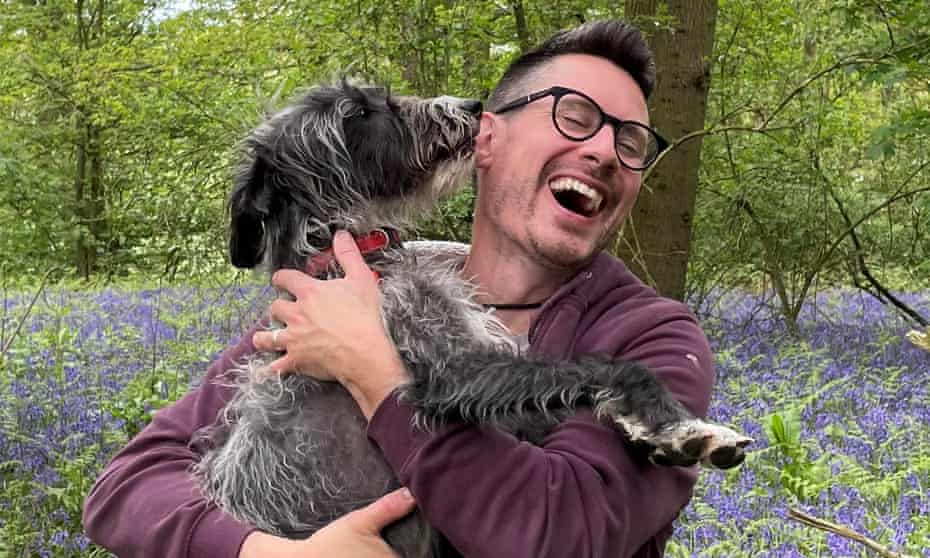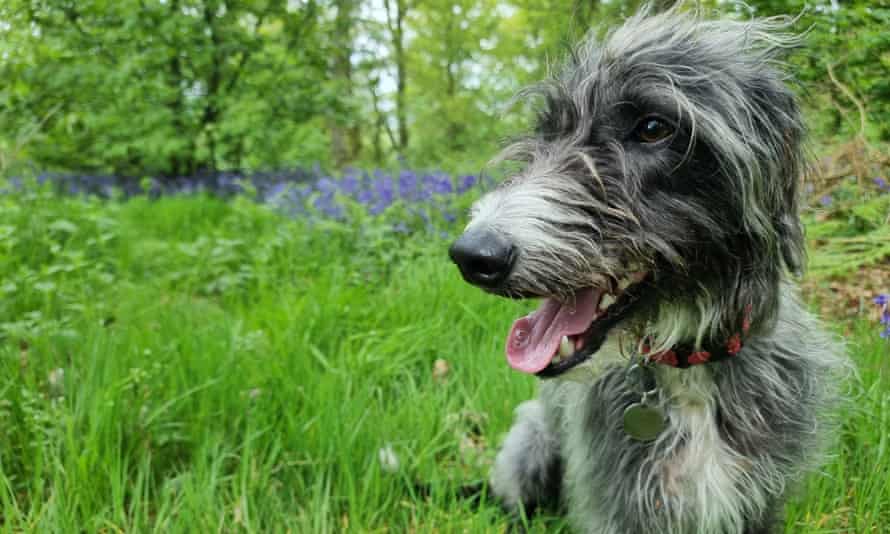Yes, I used the L-word. How else to put it, as evidence stacks up for the inherently social nature of our closest companions?

Sometimes I see it in the big moments; often it’s in the small. The fact that Oz (our black-and-white lurcher) would rather sleep under the kitchen table when I’m writing, even though the sofa is by far the comfier option. The way he rolls on to his back when I greet him each morning, exposing his chasmic armpits for a tickle. Or the way he makes sure to lick and nibble both of my earlobes, left then right, with snuffling gusto.
What other word is there to describe these joyful moments than love?
I can barely bring myself to say it. I’m a science writer and science writers aren’t supposed to use human words such as love when referring to animal behaviours. The word is too contextual – too subjective. It’s just not scientific enough, the wisdom goes. And so, we are taught to use the word “attachment” when referring to closely bonded animal relationships instead.
Thus, Oz is very attached to us. That’s what I should have written. But it all feels a bit bland, doesn’t it? Why can’t we label what some – but not all – dogs feel for us as love? After all, that’s what it seems to be.
Researching the topic, it wasn’t the strength of a single study that convinced me of this. It was the breadth. That the emotional centres of dog brains (observable through functional magnetic resonance imaging scans) light up like human brains when we are reunited with family members. That the same hormones and neurotransmitters that power the positive emotional responses that humans in close relationships feel, also seem to rise predictably (and repeatably) in dogs during their interactions with us. That dogs behave, in the presence of strangers, just like human children gathering around their caregivers for security. That dogs, quite literally, have sociality written upon their genes.
This is new ground for me as a science writer. I have long believed the concept of grief in animals should be used with caution, for example.
But something about dogs and the breadth of these new scientific discoveries makes me think the word “attachment” just isn’t good enough to describe the unique relationship that has coevolved in this context. “Attachment” is too broad a term. And, like “love”, the word is still suggestive. After all, I am attached to this laptop. I’ve had it a while and I like it a lot. Likewise, I am attached to my favourite slippers. In fact, I am attached to all sorts of things. And yet, my relationship with my dog is something else entirely.
So, for now, I’m going with love. And my hope is that it might encourage us to reflect on our relationship with dogs and the way that they are treated by us. Because if dogs can love us, then isn’t the responsibility on us to treat them with the emotional care and consideration they deserve?

My hope is that a more liberal use of the L-word among scientists and decision-makers might encourage us to do more to secure the welfare of dogs. If the government can accept that animals are sentient (an acknowledgment that was removed from law post-Brexit and has subsequently been put back) why not accept, scientifically, that dogs can love us? After all, sentience is, to a degree, no less subjective than love.
There may be benefits to this subtle shift in language. Accepting that dogs can love us might give a much-needed boost to the government’s commitment to clamping down on puppy farms. It might nudge the government to take more seriously illegal ear-cropping (reported cases have gone up by more than 600% in recent years). Or encourage the government to finally get around to tackling the overbreeding of flat-faced dogs, which can go on to suffer obstructed breathing and heart disease. Perhaps a formal declaration of love might encourage the government to curb the number of dogs used in experimental procedures.
And so, if the L-word finds its way into our everyday scientific vernacular, I’d be broadly supportive. Anything that helps communicate more effectively the strength of the unique bond we have with dogs and the responsibility we have in ensuring it continues to prosper.
Love is, after all, a scientific descriptive for the small moments that many of us see in our dogs each day: the frequent gazing; the excited tail that wags like a helicopter blade on our return.
Willingly, happily, gleefully – I submit.
Jules Howard is a zoologist and author of Wonderdog: How the Science of Dogs Changed the Science of Life, published on 12 May 2022
No comments:
Post a Comment